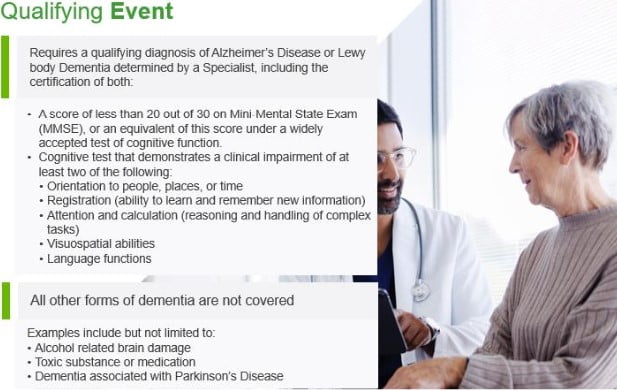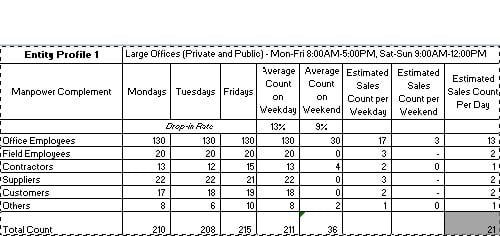The consulting business was created to provide professional and comprehensive insurance solutions tailored for individuals, families, and businesses on Life, Disability, Health and Accident (Medicare), and Long-term Care coverages. DEAJ Consulting is owned and managed by Spouses Dominic Espiritu and Divine Aranzanso Javier (DEAJ) and both are licensed insurance agents in the State of Texas.
We are not here just for the commissions but we are here for the long-term business relations and reputation that will be derived by providing the best suitable insurance and investments product meeting your personal and financial goals considering your present circumstance.
What You Should Know About Insurance
Life insurance provides a sense of financial security for both families and businesses. It can serve many purposes when developing a financial plan, such as addressing immediate cash needs or replacing income; however, before a client commits to purchasing an insurance policy, several factors require consideration. It’s important to identify each client’s needs for each insurance, and then help clients understand policy terms, conditions, and benefits. As your agent/broker, we can then guide clients to make the best purchase decision to meet coverage needs. We will guide you on your insurance and investment needs and uses, contract and policy provisions, the underwriting process, and various types of policies and coverages.

Take a look at our top tiered product Index Universal Life.
Disabilities, injuries, and illnesses can strike when least expected. With disability income insurance, consumers are protected from the financial losses that could arise if an accident or illness prevents them from working and receiving regular income. Producers have an important role in helping consumers and businesses plan for the unexpected with a wide variety of disability income products being offered.

When disability policies are issued, they contain terms and provisions common to most disability policies. Other terms and provisions are specific to the insurer or the profession/occupation of the insured. It is crucial for consumers to understand the terms commonly used by the majority of disability policies – Physician’s Care, Earnings and Prior Earnings of the Consumer, Pre-Existing Conditions, Pregnancy and Total Disability Benefit.

As the landscape of healthcare continues to evolve, Medicare is also changing and adapting to the needs of seniors and individuals with certain conditions. The insurance professionals who work in the Medicare market play an integral role each year in helping their clients navigate the changes and updates to the program. Long-term care refers to personal care and services provided to an individual who is unable to function without assistance for an extended period of time due to a physical or mental condition. The health and well-being of care providers has come into increased focus along with this development, and various technological advances have emerged to provide long-term care recipients at home or in institutional settings with increased independence, convenience, and safety.
We are CMS certified!

In the United States, seven out of ten seniors over age 65 will need some type of long-term care services during their lifetime, and approximately one-third of Americans will require care in a skilled nursing facility at some point in their lives due to changes in mobility, cognitive function, or both. When an individual’s level of mobility or cognitive function begins to change, they usually require assistance to perform normal activities of daily living (ADLs), such as bathing, eating, and getting dressed. Aging may gradually reduce one’s ability to comfortably do certain activities, but an individual may require assistance with daily activities due to a serious illness, while recovering from an injury, or after being discharged from the hospital following surgery. Often, those healing from medical conditions or procedures require short-term assistance for a few months; in other cases, care may be required for a lifetime.
Annuity Insurance is also what we offer depending on your financial goals specifically with a lifetime income to help you live your full potential and meet needs as they evolve — cash value accumulation, supplemental retirement income, college planning, and more. Some of its many benefits may surprise you.
The purpose of an annuity is to provide a steady stream of income at a future date. Although all annuity contracts share this basic structure, they range from simple to complex. Some annuities are designed to supply retirement income, while others offer tax advantages, employee benefit plan options, and excellent accumulation benefits. This will briefly reviews annuity basics, features, benefits, riders, and hybrid models with an emphasis on product suitability, client best interest standards, and adviser fiduciary responsibilities.
Originally, annuities were simple products designed to pay an income stream to an annuitant based on a lump sum of money deposited with the insurance company. Eventually, annuities designed to help accumulate retirement savings over time where introduced. Annuities are now used as tax-deferred accumulation products, as well as income-paying products, creating a future retirement income stream.

Annuity products contain unique features and lifetime income benefits designed to help individuals achieve their financial goals. Professionals licensed to sell, solicit, or negotiate annuity contracts are responsible for guiding their clients in selecting the contract benefits that suit their needs. They must also evaluate the costs against their clients’ financial risk tolerance and the desired outcome.
Essentially, Final Expense is a type of whole life insurance with smaller face amounts that run between $1,000 and $25,000, though a few insurers can offer up to $50,000 in coverage. You might even hear these policies referred to as “burial insurance” or “funeral insurance,” since the idea is to use the death benefit to pay for end-of-life arrangements. In reality, there aren’t any restrictions on how the death benefit can be spent.

This type of life insurance tends to be easier to qualify for than others. In most cases, final expense life insurance policies don’t require medical exams, so they can be a good option for someone with a pre-existing condition who can’t qualify for other types of life insurance. And since these are smaller face amounts, the monthly premiums are also less expensive relative to policies with larger death benefits.
DEAJ Investments LLC presents DEAJ Insurance and Investments Consulting, a subsidiary formed to take care of your Life, Disability, Health and Accident, HMO and Long-term Care insurance coverage needs. Check this out!
Learn more by calling us. We are here to help acquire your best fit c0verage.
Contact Us…











